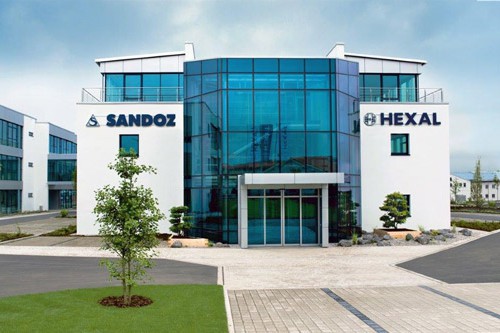
Novartis’ generics division Sandoz has signed an agreement with British drugmaker GlaxoSmithKline (GSK) to acquire its cephalosporin antibiotics brands for up to $500m.
Under the terms of the deal, Sandoz will pay $350m upfront and up to a further $150m in milestone payments for GSK’s well-established cephalosporins brands Zinnat, Zinacef and Fortum.
Sandoz will gain the global rights to the three established brands, excluding the rights in the US, Australia and Germany – which were previously divested by GSK – as well as in India, Pakistan, Egypt, Japan (to certain of the brands) and China.
The companies expect the acquisition to close in the second half of 2021, depending on customary closing conditions including regulatory approvals.
The three brands included in the deal brought in combined sales of around $140m in the relevant markets last year.
GSK will transfer cephalosporin manufacturing from its own sites to Sandoz after a four-year manufacturing and supply agreement, which will be followed by a transfer of manufacturing operations
Once the transfer of manufacturing operations to Sandoz is completed and the agreement comes to a close, GSK will close all of its cephalosporin manufacturing operations – expected to commence in 2025.
In July 2020, Sandoz announced a joint investment with the Austrian federal government to drive the long-term future of integrated antibiotics manufacturing in Europe.
The government funding primarily went towards new process technology to produce API for penicillin in Kundl, Austria. In return, Sandoz committed to related penicillin API production in Europe over the next ten years, despite increasing global price competition – in particular from China.
“This important transaction will further position Sandoz as a global leader in antibiotics – truly essential medicines that are the backbone of modern healthcare systems,” said Richard Saynor, chief executive officer of Sandoz.
“Cephalosporins are the largest antibiotic segment by global sales and acquiring this leading business, including the established global Zinnat brand, will complement our number one position in generic penicillins, the other key segment,” he added.
GSK still has some antibiotic assets, including its investigational drug gepotidacin which is being evaluated in phase 3 for the treatment of uncomplicated urinary tract infection (UT) and urogenital gonorrhoea.
Phase 2 testing revealed that gepotidacin was 95% effective in eradicating uncomplicated gonorrhoea, and also worked at two of three doses tested against acute bacterial skin and skin structure infections (ABSSSI).
The pharma industry has refocused on antibiotic research as of late, with the International Federation of Pharmaceutical Manufacturers and Associations (IFPMA) raising nearly $1bn to support clinical research into new antibiotics last year.
The AMR Action Fund was created to bring two to four new antibiotics to patients by 2030 – treatments which are urgently needed to address the rapid rise of antibiotic resistance, which is a part of the broader issue of antimicrobial resistance.
A number of major pharma companies have invested in the scheme, including Pfizer, Boehringer Ingelheim, Johnson & Johnson and Merck.




